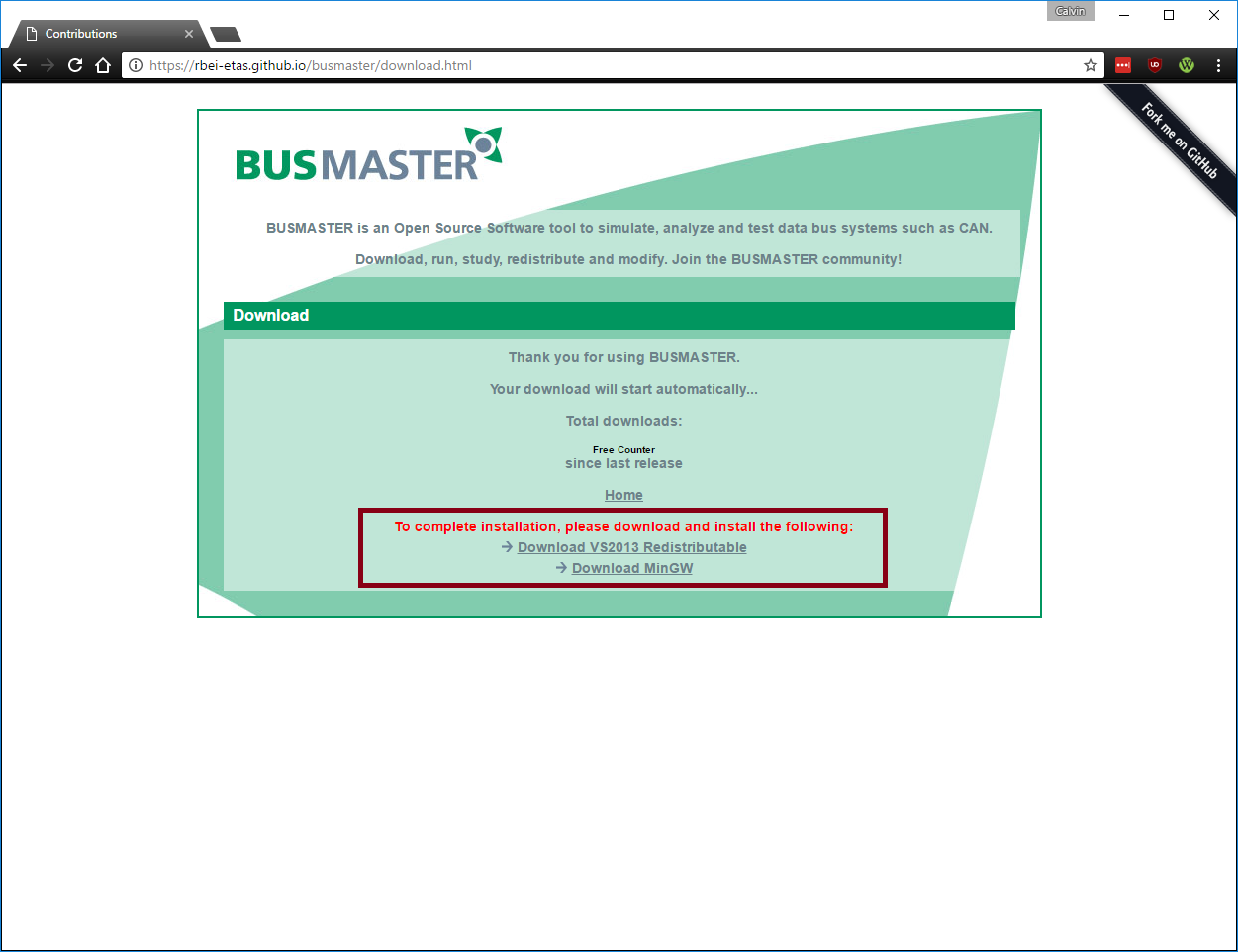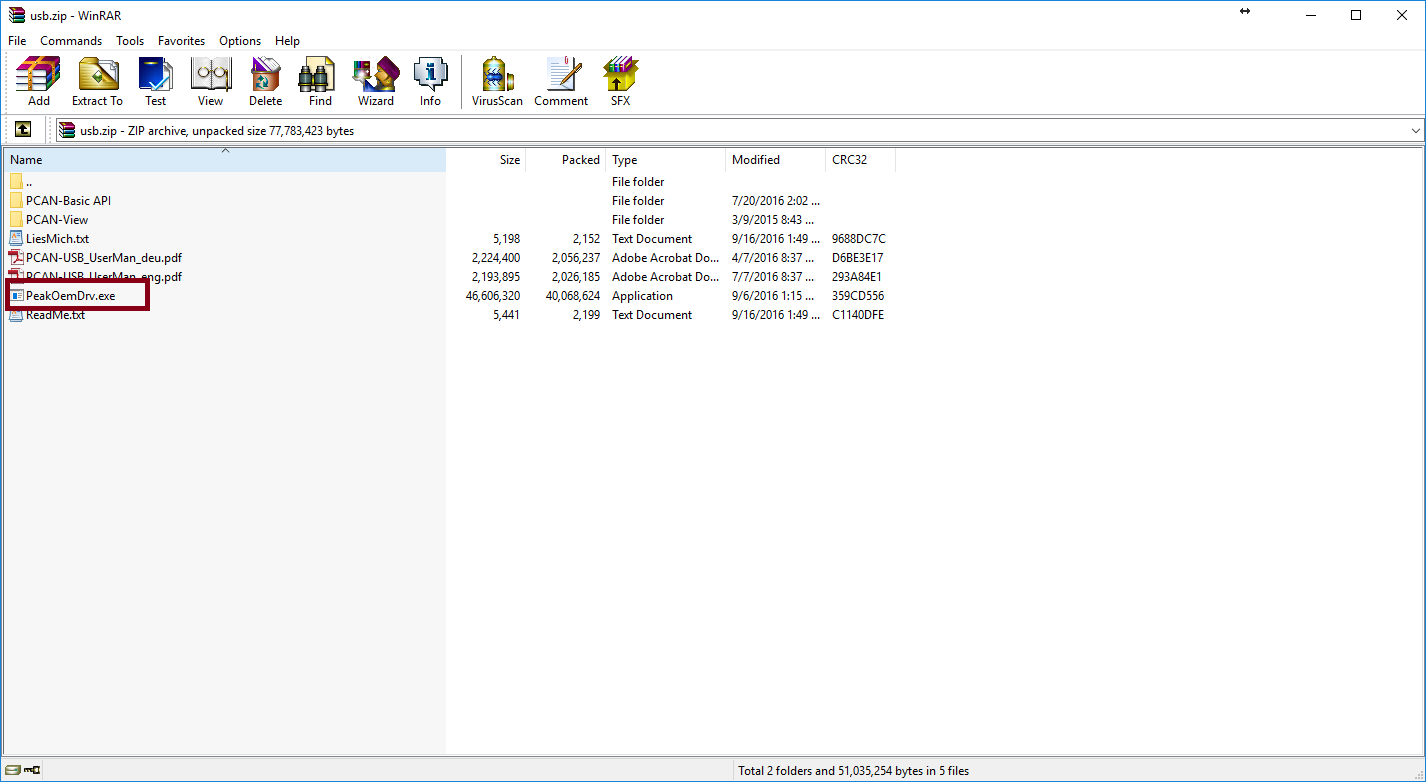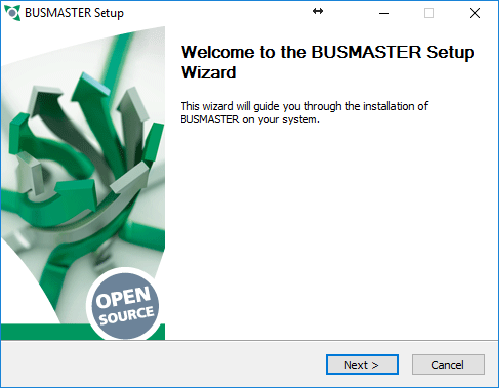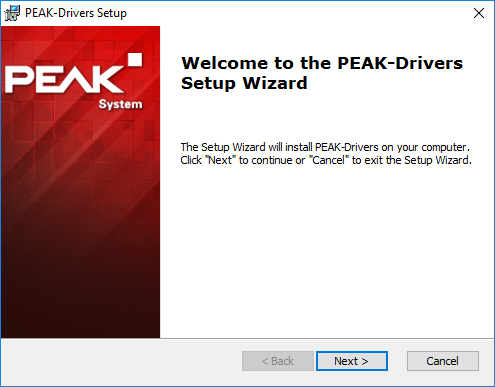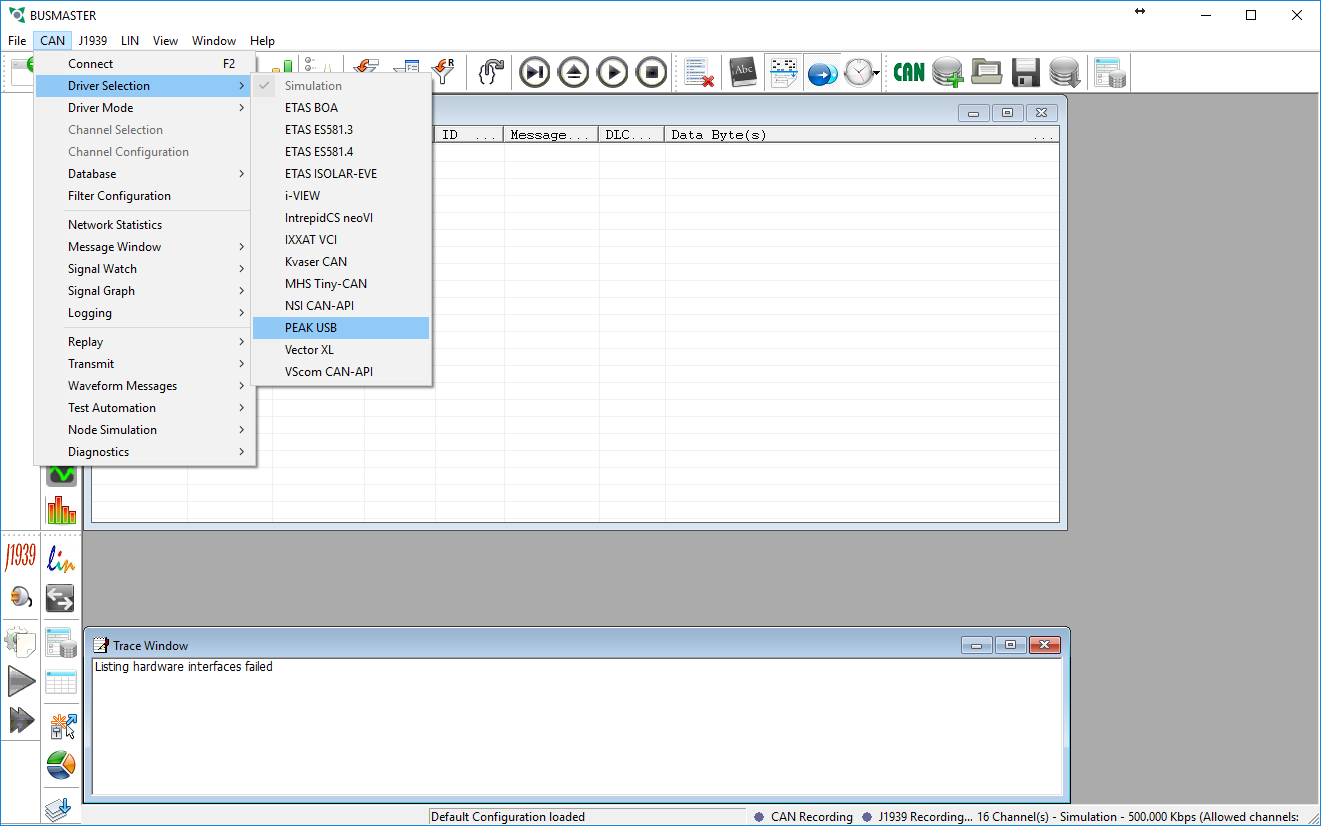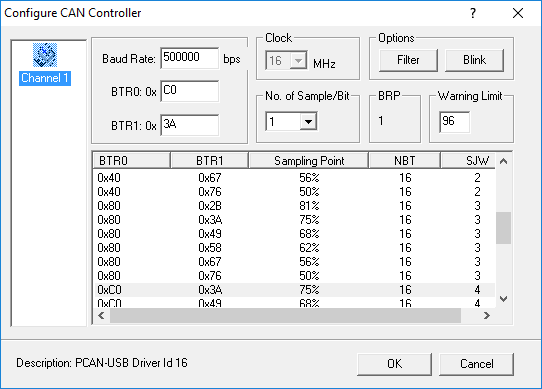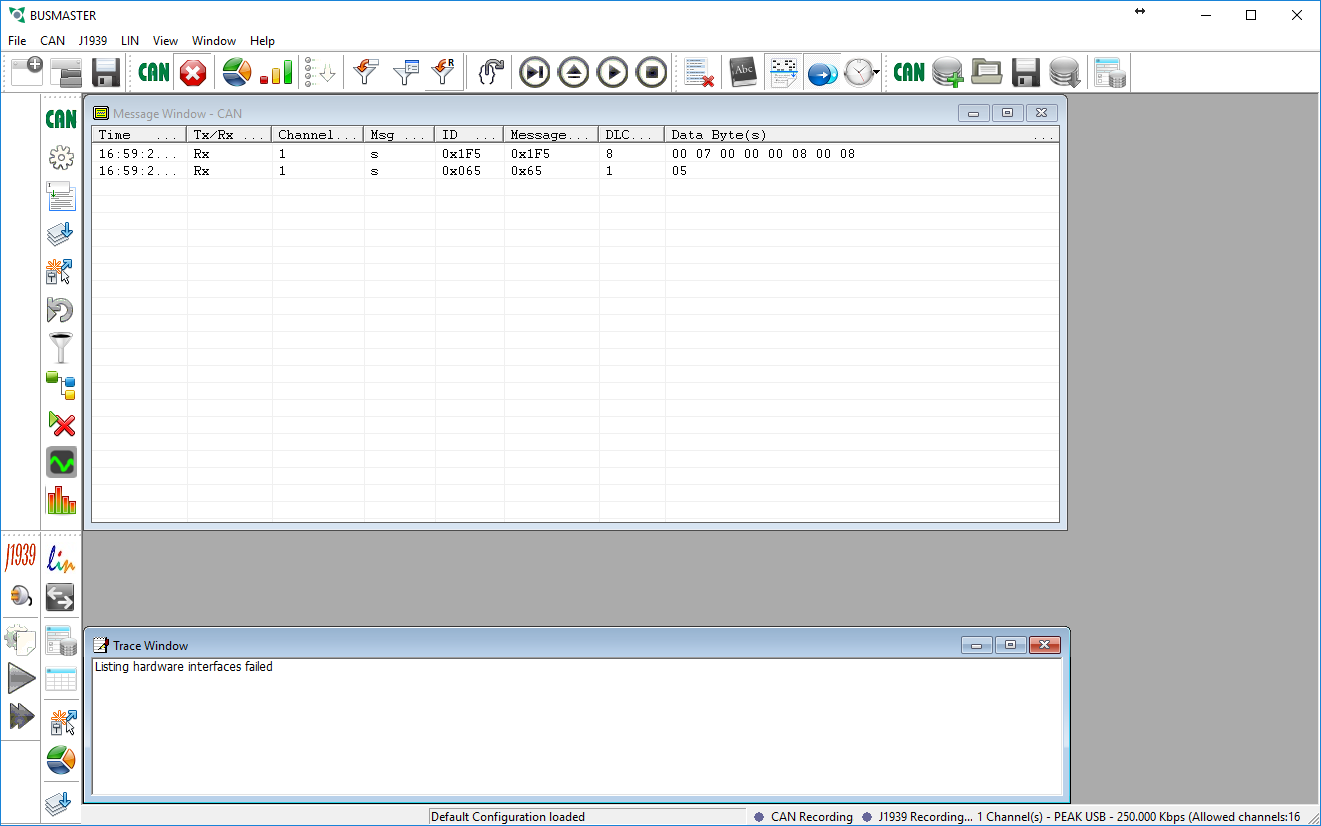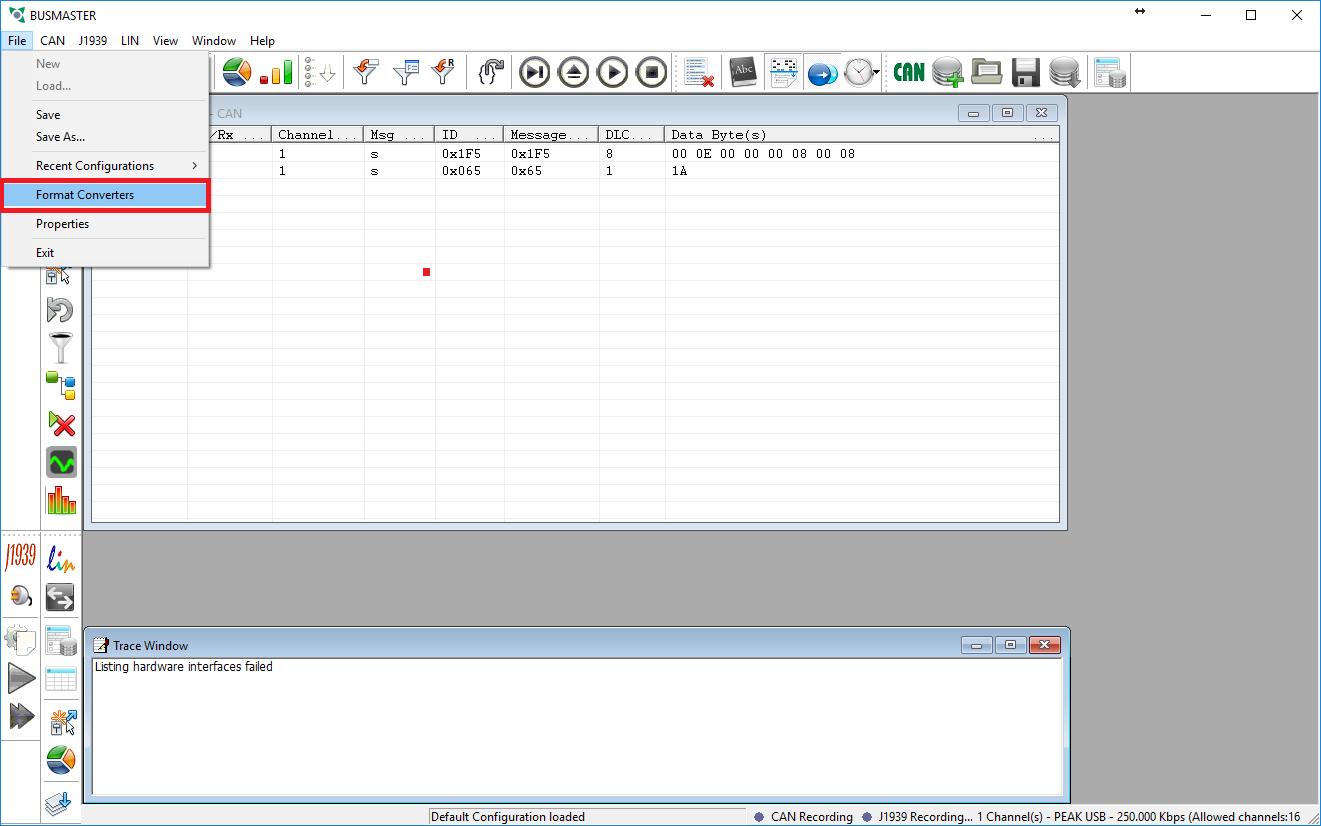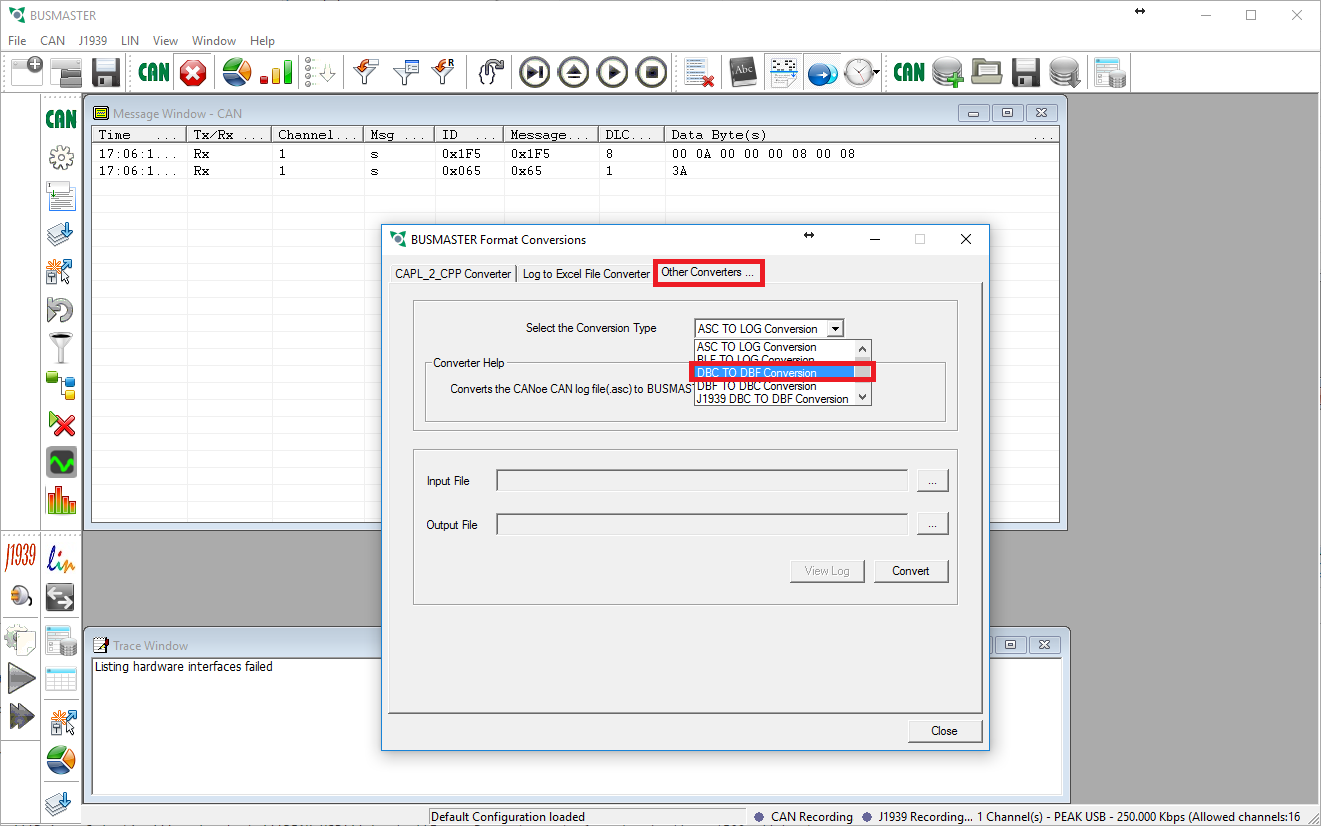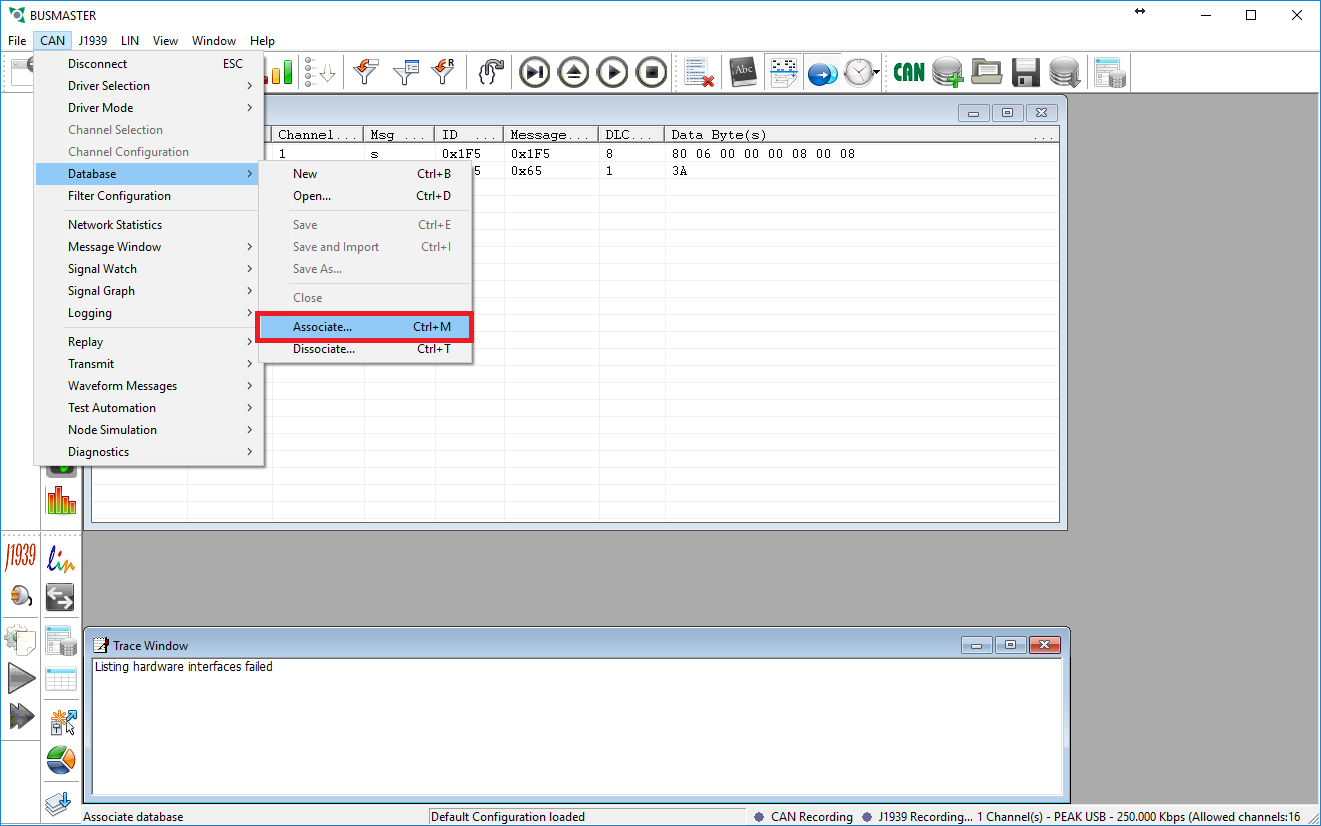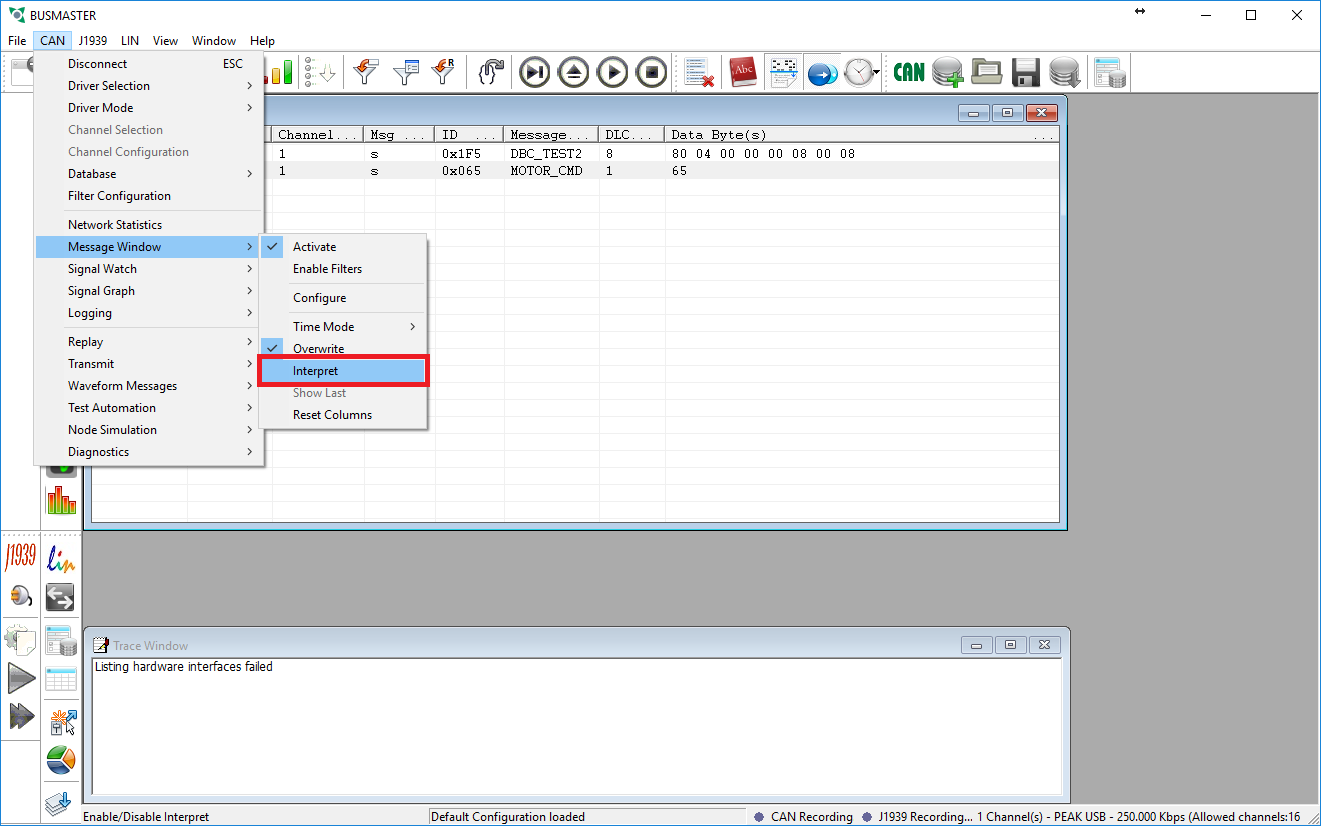Difference between revisions of "BusMaster"
From Embedded Systems Learning Academy
(Created page with " == Step 1: Downloading Necessary Files == BusMaster can be found at the following location: [https://rbei-etas.github.io/busmaster/ BusMaster] [[Image:Busmaster dl.png|cent...") |
|||
| Line 2: | Line 2: | ||
== Step 1: Downloading Necessary Files == | == Step 1: Downloading Necessary Files == | ||
| − | |||
| − | [[Image:Busmaster dl.png|center| | + | [[Image:Busmaster dl.png|center|frame|500px| BusMaster can be found at the following location: [https://rbei-etas.github.io/busmaster/ BusMaster]]] |
---- | ---- | ||
| − | |||
| − | [[Image:Busmaster dl2.png|center| | + | [[Image:Busmaster dl2.png|center|frame|500px| You will also need to download VS2013 and MinGW. The links are available after you download the BusMaster Installer]] |
---- | ---- | ||
| − | |||
| − | [[Image:Pcan driverrs instal2.png|center| | + | [[Image:Pcan driverrs instal2.png|center|frame|500px|PCAN Dongle Drivers can be found here: [https://gridconnect.com/pcan/can-adapters/can-usb.html Drivers]]] |
| − | |||
| − | [[Image:Pcan driverrs instal1.png|center| | + | [[Image:Pcan driverrs instal1.png|center|frame|500px|The correct file for the drivers will be in the usb.zip file and is named: PeakOemDrv.exe]] |
| Line 28: | Line 24: | ||
# Install VS2013, MinGW, BusMaster, and PCAN Drivers with all default values. | # Install VS2013, MinGW, BusMaster, and PCAN Drivers with all default values. | ||
| − | [[Image:Busmaster install1.png|center|500px]] | + | [[Image:Busmaster install1.png|center|frame|500px]] |
| − | [[Image:Pcan driverrs instal3.png|center|500px]] | + | [[Image:Pcan driverrs instal3.png|center|frame|500px]] |
== Step 3: Setting up BusMaster == | == Step 3: Setting up BusMaster == | ||
# Open BusMaster | # Open BusMaster | ||
| + | # Under the '''CAN''' menu go to '''Driver Selection''' and select '''PEAK USB'''<br /> [[Image:Busmaster setup1.png|center|frame|500px]]<br /> | ||
| + | # Under the '''CAN''' menu go to '''Channel Configuration''' and change the '''Baud Rate''' to match your CAN bus and click '''OK'''.<br /> [[Image:Busmaster baud rate.png|center|frame|500px]] <br /> | ||
| + | # Under the '''CAN''' menu click '''Connect''' | ||
| + | # If everything went correctly you should now start receiving any messages that are being sent on the CAN bus. <br /> [[Image:Busmaster listening.png|center|frame|500px]] | ||
| − | # Under the '''CAN''' menu go to ''' | + | ---- |
| + | |||
| + | Now that we are receiving messages the next step is to get them to decode properly. That way we can see the physical values of the messages instead of the hex values of the raw data frames. To do this we need to attach a database file to this configuration. Since the '''DBC''' file format is proprietary BusMaster uses a similar file type called '''DBF''' instead. However, BusMaster comes with a function that will allow us to convert DBC files to DBF files. Please follow the instructions below to convert your file and attach it to this instance. | ||
| + | |||
| + | # Under the '''File''' menu go to '''Format Converters''' <br \> [[Image:Busmaster convert1png.png|center|frame|500px]] | ||
| + | # Select the '''Other Converters''' tab and then choose '''DBC to DBF''' in the drop down menu <br \> [[Image:Busmaster convert2.png|center|frame|500px]] | ||
| + | # Choose your DBC file as the Input File. The Output File's name and location will be the same as your DBC file except with the extension of .DBF. Close the dialog box when the conversion is complete <br \> | ||
| + | # Under the '''CAN''' menu go to '''Database''' then select '''Associate''' and choose the newly converted DBF file. <br \> [[Image:Busmaster convert3.png|center|frame|500px]]<br \> | ||
| + | # The '''Message Window''' should now show the correct names for the messages on the bus. The next step is to '''interpret''' the signals in the messages so that we can see what the physical values are. <br \> [[Image:Busmaster usage.png|center|frame|500px]]<br \> | ||
| + | # After enabling the '''interpret''' function you will see a small + box next to the messages. If you click this box the messages will expand and show you the individual signal values. <br \> [[Image:Busmaster usage2.pngcenter|frame|500px]]<br \> | ||
| + | # Now would be a good time to save you configuration in case your settings get reset so that you do not have to reconfigure BusMaster. | ||
Revision as of 01:44, 17 October 2016
Step 1: Downloading Necessary Files
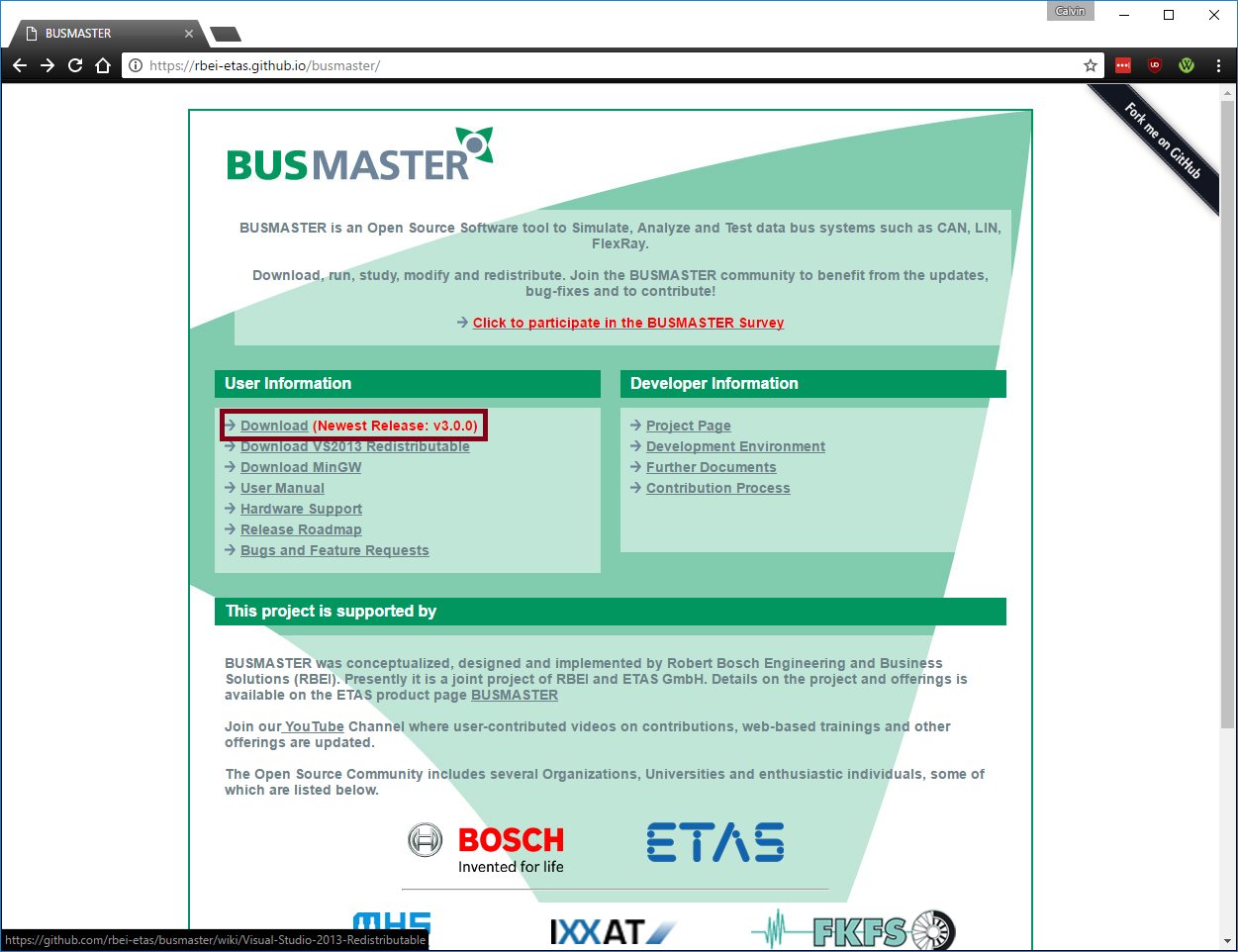
BusMaster can be found at the following location: BusMaster
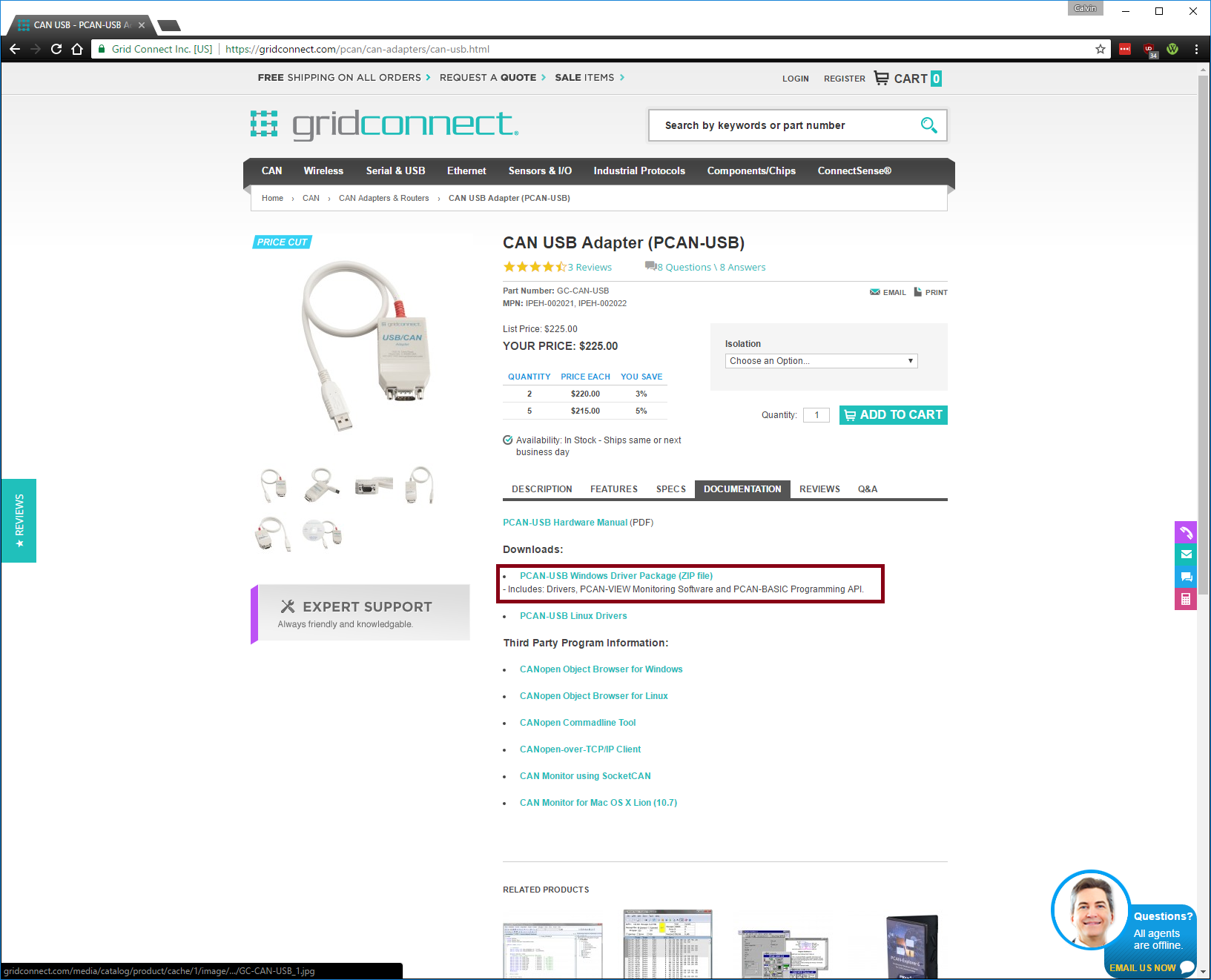
PCAN Dongle Drivers can be found here: Drivers
Step 2: Installing
- Install VS2013, MinGW, BusMaster, and PCAN Drivers with all default values.
Step 3: Setting up BusMaster
- Open BusMaster
- Under the CAN menu go to Driver Selection and select PEAK USB
- Under the CAN menu go to Channel Configuration and change the Baud Rate to match your CAN bus and click OK.
- Under the CAN menu click Connect
- If everything went correctly you should now start receiving any messages that are being sent on the CAN bus.
Now that we are receiving messages the next step is to get them to decode properly. That way we can see the physical values of the messages instead of the hex values of the raw data frames. To do this we need to attach a database file to this configuration. Since the DBC file format is proprietary BusMaster uses a similar file type called DBF instead. However, BusMaster comes with a function that will allow us to convert DBC files to DBF files. Please follow the instructions below to convert your file and attach it to this instance.
- Under the File menu go to Format Converters
- Select the Other Converters tab and then choose DBC to DBF in the drop down menu
- Choose your DBC file as the Input File. The Output File's name and location will be the same as your DBC file except with the extension of .DBF. Close the dialog box when the conversion is complete
- Under the CAN menu go to Database then select Associate and choose the newly converted DBF file.
- The Message Window should now show the correct names for the messages on the bus. The next step is to interpret the signals in the messages so that we can see what the physical values are.
- After enabling the interpret function you will see a small + box next to the messages. If you click this box the messages will expand and show you the individual signal values.
- Now would be a good time to save you configuration in case your settings get reset so that you do not have to reconfigure BusMaster.
